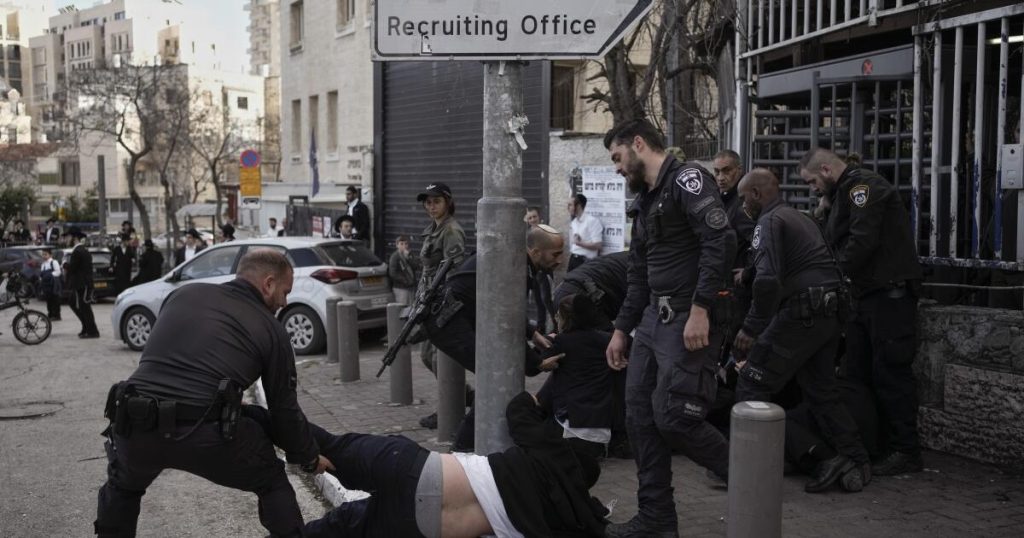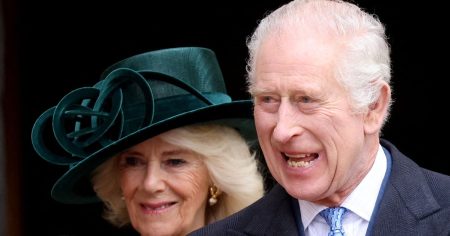Israel’s Supreme Court has ruled to curtail subsidies for ultra-Orthodox men, sparking concerns about the future of Prime Minister Benjamin Netanyahu’s governing coalition. The court deemed the current system, which grants exemptions to ultra-Orthodox men from military service while studying in religious seminaries, as discriminatory. Netanyahu has until Monday to present a plan to dismantle this system, and until June 30 to pass one. If he alienates the ultra-Orthodox lawmakers on whom he depends for support, his coalition could disintegrate, potentially leading to new elections.
The exemption for ultra-Orthodox men from military service has long been a source of resentment among the broader public in Israel. The system, dating back to Israel’s founding, allowed some 400 yeshiva students to devote themselves to Torah study, but has since become a divisive issue as the ultra-Orthodox population has grown. Many ultra-Orthodox continue to receive government stipends for religious studies into adulthood, raising concerns about the sustainability of the system. The court’s decision to curtail subsidies has been celebrated by many Israelis, who view it as a step towards equality in military service and economic contributions.
Ultra-Orthodox leaders have strongly opposed the court’s decision, viewing it as an attack on their way of life and religious freedoms. They argue that maintaining a devout lifestyle and dedicating themselves to upholding Jewish commandments is as important for Israel’s security as a strong military. While some ultra-Orthodox individuals have served in the military, many vow to resist any attempts to compel Haredim to do so, citing the importance of studying Torah. The ultra-Orthodox parties, long-time partners of Netanyahu, are pushing to maintain draft exemptions.
The court’s ruling threatens Netanyahu’s governing coalition, as he faces pressure from both former generals in his War Cabinet demanding equal contribution from all sectors of society, and the ultra-Orthodox parties insisting on preserving draft exemptions. If Netanyahu tries to maintain the exemptions, he risks losing support from key members of his coalition, potentially leading to its collapse and new elections. This comes at a sensitive time as the country is engaged in a difficult war situation. Should the ultra-Orthodox parties decide to leave the government, the coalition would likely fall apart, leaving Netanyahu in a vulnerable position.
The Supreme Court’s decision has put Netanyahu in a challenging position, where he must navigate between the demands for equality in military service and the pressure to maintain the support of the ultra-Orthodox parties. The ruling has sparked debates about the future of the Haredi relationship with the state, including discussions on education and employment. While the loss of state subsidies poses a financial challenge for yeshivas, it is unlikely to shut them down completely as they receive only a small portion of their funding from the government. Netanyahu’s coalition may try to find alternative funding sources to cover the gaps left by the subsidy cut.
Ultimately, the court’s ruling has brought to the forefront longstanding tensions within Israeli society regarding the exemption of ultra-Orthodox men from military service. The decision has raised questions about the future of Israeli politics, with Netanyahu’s coalition facing potential instability if he fails to navigate the conflicting demands of different sectors of society. As the country continues to grapple with the implications of the court’s decision, the fate of Netanyahu’s government hangs in the balance, with the potential for new elections looming if the coalition collapses.








